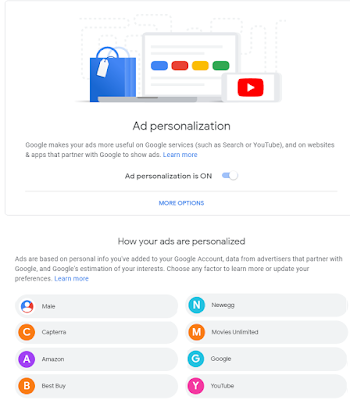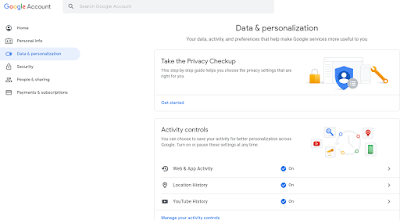This is Part 1 of a 2 part articleInformation is valuable....Personal data is worth billions.
Nearly every moment of our lives, we’re producing data about ourselves that companies profit from. Billions worth.
Personal data is often compared to oil—it powers today’s most profitable corporations, just like fossil fuels energized those of the past. But the consumers it’s extracted from often know little about how much of their information is collected, who gets to look at it, and what it’s worth.
Every day, hundreds of companies you may not even know exist, gather facts about you, some more intimate than others. That information may then flow to academic researchers, hackers, law enforcement, and foreign nations—as well as plenty of companies trying to sell you stuff.

How is our data collected?
Our smartwatches know when we wake up,
Alexa and Android Assistant listens to our conversations, our phones track where we go, Google knows what we email and search, Facebook knows what we share with friends, and our loyalty cards remember what we buy.
We share all this data about ourselves because we like the services these companies provide, and business leaders tell us we must to make it possible for those services to be cheap or free.
In 2018 the nonprofit news organization ProPublica conducted an investigation on how medical devices obtain data. This data includes heart rates, sleep patterns, the number of steps taken in a day — and patients have been shocked at the ways that information is being used.
According to the investigation, the data that’s constantly collected by step counters, blood glucose monitors, medication alerts and trackers, in-home cameras, heart monitors and CPAP breathing machines is being packaged and sold for advertising, anonymized and used by IT companies, and even shared with health insurers, who can use it to deny reimbursement.
Facebook’s business has relied on the trade of data for free service since they started it in a dorm room nearly 15 years ago, but due to the Cambridge Analytica scandal, only recently it's has shown users about just how this works.

As a typical CEO, Mark Zuckerberg describes this as a win-win – people stay in touch with friends and family more often through a free service, and businesses can more efficiently spend marketing dollars to fuel corporate profits, making Facebook free to all.
But one party has benefited a lot more than anyone else: Facebook shareholders.
Despite all the recent controversy, Facebook is still valued at nearly $500bn.
What Constitutes "Personal Data"?
“Personal data” is a pretty vague umbrella term, and it helps to unpack exactly what it means. Health records, social security numbers, and banking details make up the most sensitive information stored online.
Social media posts, location data, and search-engine queries may also be revealing but are also typically monetized in a way that, say, your credit card number is not. Other kinds of data collection fall into separate categories—ones that may surprise you. Did you know some companies are analyzing the unique way you tap and fumble with your smartphone?
All this information is collected on a wide spectrum of consent: Sometimes the data is forked over knowingly, while in other scenarios users might not understand they’re giving up anything at all.
Who Buys, Sells, and Barters My Personal Data?
The trade-off between the data you give and the services you get, may or may not be worth it, but another breed of business amasses, analyzes, and sells your information without giving you anything at all: data brokers.
These firms compile info from publicly available sources like property records, marriage licenses, and court cases.
They may also gather your medical records, browsing history, social media connections, and online purchases. Depending on where you live, data brokers might even purchase your information from the Department of Motor Vehicles. Don’t have a driver’s license? Retail stores sell info to data brokers, too.
In part 2 we'll read what choices you (the consumer) have and what you can do about it.
 1. On your browser log into your Google account if your not already logged in.
1. On your browser log into your Google account if your not already logged in.





